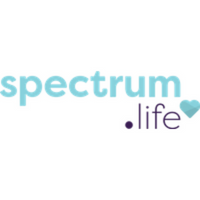5 ways to create a culture that celebrates different thinking
It’s a sad fact that only 21.7% of autistic adults are employed, despite many wanting to work and autism being associated with a range of strengths and talents such as attention to detail, memorising and learning information quickly, highly developed pattern recognition, logical thinking, honesty and loyalty.
Autistic people can experience difficulties getting a job and coping with work environments, processes or cultures and this is often due to the associated social and sensory demands rather than their ability to do the job.
As part of continued commitment to embracing and celebrating diversity in all forms, it is important to reflect on our workplaces and everyday lives to ensure we are being as inclusive and accepting of difference as we can.
Differences – and similarities
Autism is a lifelong pattern of differences in how someone communicates and interacts with the world. This looks different for every autistic person, but there are some things most people with autism have in common these are:
- Communicating differently
- Interacting differently
- Thinking differently
- Processing sensory information differently
Autistic people are often experts in masking. Although masking isn’t unique to autism, autistic people often hide certain behaviours to try and fit in and to comply with social norms. This can include copying nonverbal communication and using behaviour they have learned is expected in certain situations.
Studies have shown autistic people who mask show more signs of anxiety and depression and it is tragically linked to an increase in suicidal behaviour.
How can you help create a culture where everyone feels safe enough to be themselves?
1. What’s in a name?
Listen to what autistic people have said about how they want to be described. Although the term ‘autism spectrum disorder’ is the formal term, autistic people often feel this is stigmatising and prefer simply ‘autism’. The same goes for abbreviations of this, such as ASD and ASC.
Avoid ‘person first language’ (eg person with autism) and instead describe someone as ‘autistic’ as their autism is a valued part of who they are, not something they acquired like a cold.
2. Communicate clearly
Say exactly what you mean – avoid innuendo or alluding to things indirectly. Don’t hint or imply as your words could be missed or misinterpreted. Speak clearly and directly to avoid confusion. This leads to more effective communication for everyone.
It is a myth that autistic people are not sociable. Some autistic people may prefer to avoid social interactions or events as they find them hard work, anxiety provoking or overwhelming. Keep invitations open so everyone continues to feel welcome and included.
To make an event more accessible or appealing to autistic people, ask where they might prefer to go. Consider autism friendly venues or times (where there is usually low lighting/noise and reduced numbers of people) to make them feel more comfortable.
3. Is that meeting necessary?
Social interactions can feel even more difficult in a work setting. Consider if a meeting is really necessary, or if an email will suffice. Consider the sensory aspects of a meeting location and the possible impact of time, date or venue changes to make meetings and events more accessible to everyone.
Ensure the key points and actions arising from a meeting are summarised and allocated clearly before the end of the meeting and share these with the group promptly, asking them to check them to ensure team members have interpreted the information in the way it was meant.
4. Familiarity and predictability
We all have preferences in how we like things to be and do things a certain way. Respect this and understand that routines and rituals can be a way for autistic people to manage and minimise anxiety in stressful situations or unfamiliar environment. This applies to us all – we all work better in stable and predictable environments, particularly autistic people.
5. Educate and understand
It is impossible to know everything about everyone and how to best support them and everyone has the right to choose what they share about themselves with others. Where you can, educate yourself on autism and neurodivergence and consider how a colleague with autism might experience you, your team and your work environment.
If you notice someone is struggling, ask them what you can do that would make things easier for them. If you notice differences in someone’s social communication, interactions or other behaviours, try and understand that they may be struggling and consider that they may be neurodivergent.
Your compassion and curiosity could have a positive impact on your workforce for neurodivergent colleagues and embracing diversity.
Supplied by REBA Associate Member, Spectrum Life
Supporting 4m+ lives in the corporate, education and insurance sectors with our health & wellbeing solutions.”








